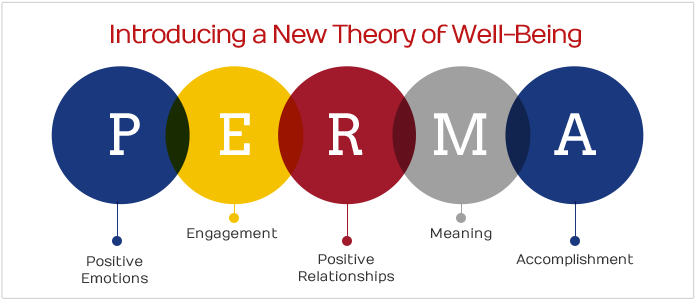What is Positive Psychology?
Within the field of psychology, positive psychology is the science of well-being and optimal functioning. It concentrates on what makes individuals and communities flourish (thriving, prospering, and fare welling in endeavors free of mental illness, filled with emotional vitality, and function positively in private & social matters), rather than languish (weakening and suffering, negative states). Within positive psychology, there are three nodes: the subject node (positives experiences & states across time), the individual node (characteristics of a good person), and the group node (positive institutions, citizenship, and communities). In comparison to the other fields of psychology, positive psychology is able to provide the scientific community, society, and individuals a fresh perspective on existing ideas & theories through the use of empirical evidence supporting human flourishing. In addition, positive psychology aims to understand what is good in us, in life, and what works for us to make life worth living while other disciplines of psychology focuses on the dysfunction and abnormal behaviors." Positive Psychology is the branch of psychology that uses scientific understanding and effective intervention to aid in the achievement of satisfactory life, rather than treating mental illness." Wikipedia
An important figure who influenced the rise of positive psychology in recent years was the American psychologist, educator, and author of several self-help books, Martin Seligman. Seligman is famously known for the well-being theory stating that well-being is a construct; and well-being, not happiness, is the main topic of positive psychology. The five measurable elements (PERMA) of well-being are: positive emotion, engagement, relationships, meaning, and achievement. Overall, the strong focus on well-being & its elements and the other contributions/insights of Seligman help to define/explain what positive psychology is and how this field differentiates with the other disciplines of psychology.
Resources:
Hefferon, Kate, and Ilona Boniwell. Positive Psychology: Theory, Research and Applications. Maidenhead, Berkshire, England: Open UP, 2011. Print.
"Positive Psychology." Wikipedia. Wikimedia Foundation, n.d. Web. 27 May 2015.
Seligman, Martin E. P. Flourish. North Sydney, N.S.W.: Random House Australia, 2011. Print.


No comments:
Post a Comment